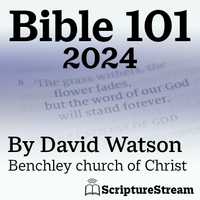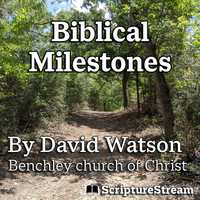Introduction
- Acts 8:4
- I Timothy 1:3; Titus 1:4, 12-13
Preach the word.
- II Timothy 4:1-5
- To preach the word, you must preach from the word!
- II Timothy 2:15
- II Timothy 3:13-17 – This is what we want! The scripture that will prepare us.
- Titus 2:1 – Teach sound doctrine.
Fight error.
- I Timothy 1:3-7
- Acts 20:26-32 – You need God’s word to fight off error.
- I Timothy 4:5-8 – We must stay away from far-fetched theories.
- I Timothy 6:3-5
- II Timothy 2:14-18
- Titus 3:9-11 – You will need to take a stand against error!
- Titus 1:13
Speak with authority.
- Titus 3:1
- I Timothy 5:20
- I Timothy 6:18
- II Timothy 1:7



